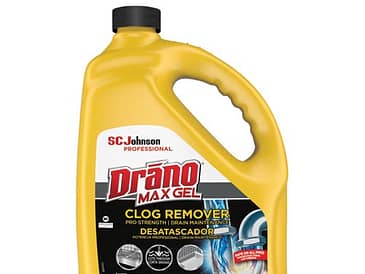
A septic tank collects all of the waste that leaves your home through drains, toilets and sinks and converts it to effluent using bacteria.
Cleaning products containing chlorine bleach will destroy beneficial bacteria that support septic systems, diminishing their efficiency. Instead, there are natural cleansers available that will keep your tank functioning as it should be.
Baking Soda
Baking soda is an effective natural cleaner that can make short work of cleaning out your septic tank. Baking soda acts as an odor neutralizer while helping break down waste in the system, as well as acting as a buffer against acid damage to prevent corrosion to pipes and tanks. Furthermore, its regular use will keep drains free from blockages while helping keep them running freely and prevent future clogs.
Consider that your septic tank contains bacteria which work to break down and decompose waste, making sure not to kill these essential workers with harsh cleaning products like bleach. Harsh chemicals can damage good bacteria in the system and lead to costly repairs or even clogs if left alone for too long.
Use natural products, like vinegar and baking soda, to maintain your septic tank. Not only is this approach safer for your system than bleach-based cleaners but it is also better for the environment as all-natural options won’t erode soil quality or water resources.
Yeast can also help to naturally cleanse your septic tank. By increasing bacteria counts in your system and speeding up waste breakdown, this natural treatment is one effective method. To use it yourself, simply boil half a gallon of water with 2 cups of sugar added and allow to sit until room temperature before adding three packets of dry yeast – then pour and flush as usual in your toilet at night for maximum effectiveness!
Commercial septic tank treatments that contain bacteria-enhancing ingredients like baking soda and yeast may also be available, often in liquid, pod, or tablet form for easy flushing down toilets. When shopping around for this kind of treatment it is a good idea to ensure they have been certified as Ecocert or The Environmental Working Group approved so you know they won’t negatively impact your system.
Vinegar
Septic tanks contain trillions of bacteria that play an essential role in breaking down household waste. These bacteria can generally be divided into two groups – aerobic and anaerobic. Aerobic bacteria require oxygen for growth and are better at breaking down organic matter while being more sensitive to chemicals and cleaners than their anaerobic counterparts.
Bleach is one of the primary enemies of septic tank bacteria, killing off beneficial strains that keep your drains and septic system functioning smoothly. Furthermore, its toxic waste seeps into groundwater supplies leaving harmful residue behind – therefore it would be wiser to opt for natural cleaning products like baking soda and vinegar in its place.
Vinegar is an invaluable household item with multiple uses. From cleaning surfaces and disinfecting surfaces, unclogging drains, rust removal on metal pots and pans and keeping septic tanks healthy; vinegar has it all!
Vinegar can help stimulate bacteria levels in your tank, which in turn accelerates the breakdown of solid waste and decreases levels of sludge build-up. Pouring some vinegar down your toilet can give your septic tank a quick and easy checkup!
Yeast can also help increase bacterial levels in your septic tank. Simply combine it with water and pour down your toilet at night for maximum effectiveness; yeast will create an environment favorable to its bacteria that aid in breaking down waste faster.
Flushing anything other than toilet paper and waste into your septic tank should also be avoided as much as possible, including baby wipes, feminine hygiene products and thick paper towel. Doing this will prevent an overflowing of your tank as well as lower the risks of bacteria invading and infecting your family members’ systems.
Implement the above suggestions and have your septic tank regularly cleaned by professionals, to maintain optimal performance of your septic system. If your septic system seems to be malfunctioning or working inefficiently, contact Fagone Plumbing immediately – our skilled experts will quickly identify and provide cost-efficient solutions.
Tomatoes
Septic systems rely on natural processes to filter wastewater that leaves your home, including an ecosystem composed of both good and bad bacteria to break it down. While commercial products promise the benefits of these bacteria to your system, there are also DIY approaches you can use to introduce their enzymes at an extremely affordable cost.
Rotten tomatoes can also help increase bacterial activity in your septic tank naturally. Simply flush 3-4 rotten tomatoes every four months into your system for maximum benefit – or crush up the tomatoes and put them directly into your garbage disposal while running, though this method may not be as efficient.
Though these homemade cleaners will help maintain an active ecosystem for your septic tank, it’s still crucial that you avoid cleaning products with bleach or harsh chemicals that could kill or disrupt its natural functions. Drain and toilet cleaners containing chlorine, sodium hydroxide or hydrogen peroxide could particularly be detrimental to its bacteria population.
Dos and don’ts for DIY maintenance of septic systems include never flushing raw meat through the toilet, garbage disposal or any other means into your septic tank; its bacteria is not good for its environment. Furthermore, avoid flushing anything other than waste paper into your septic system such as feminine products, baby diapers, wipes or paper towels; this includes flushed feminine products.
Professional septic tank cleaners are an essential element in maintaining a healthy septic system and should regularly inspect and pump out your tank to make sure everything is operating as intended. Their inspection and pumping will not only ensure your system is functioning well but will also take steps to remove any solid waste that accumulates before it becomes an issue.
Yeast
Yeast can help maintain the cleanliness of a septic tank by increasing the population of bacteria that live within it, speeding up decomposition of solid waste and preventing blockages, while also helping prevent oily scum accumulation that might cause overflow of your tank. All it takes to get this process underway is flushing several packets of dry yeast down your toilet!
This method for cleaning out your septic system is one of the easiest and is recommended by many websites. Begin by boiling half gallon of water, mixing in two cups of sugar as an initial food source for new bacteria to feed off of. When this mixture cools off completely, add three packets of dry yeast and combine. Pour this solution directly into your toilet bowl before flushing. Repeat this every six months as necessary to keep your tank healthy.
Problems with your septic tank could stem from various causes. Common ones include pouring grease down the drain, not having your tank pumped regularly enough, flushing unsuitable items down your toilet (such as wet wipes and feminine products) flushed without proper permission, using harsh drain cleaners, etc. If this is occurring to you it is vital that you contact a plumber as soon as possible to address these issues and resolve them as quickly as possible.
As an additional method for cleaning your septic tank, mixing vinegar with baking soda can also be an effective way to do the trick. This solution won’t harm the bacteria present, helping your system run more smoothly while also cutting costs on repairs. Regular application can keep things running smoothly while saving on repair bills.
Pumping your septic tank on an ongoing basis is also vitally important. If you are uncertain when the last time was, contact Fagone Plumbing immediately to arrange an appointment with one of their septic tank specialists, who will advise on when best to have your tank pumped and ensure its functionality.



